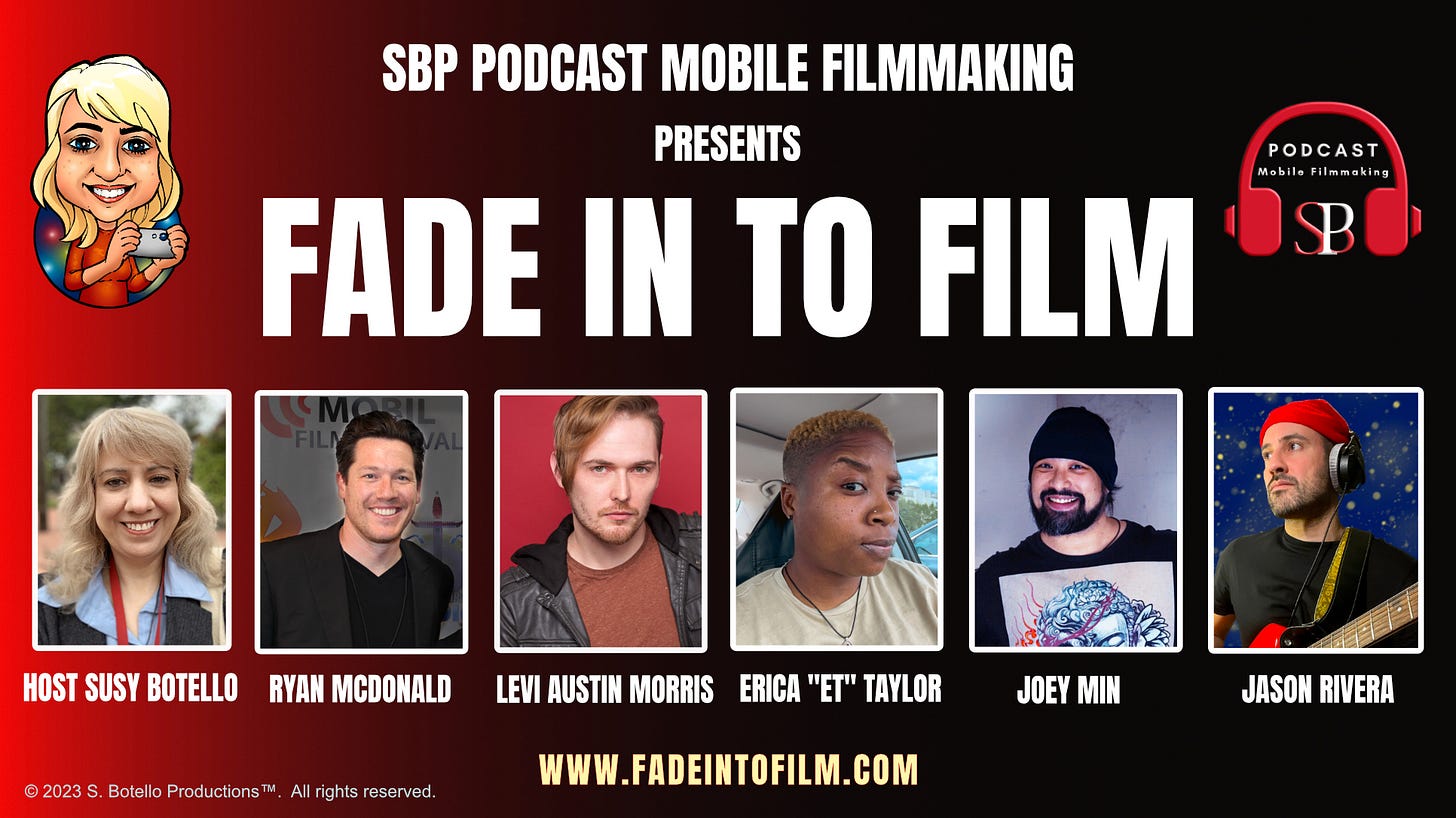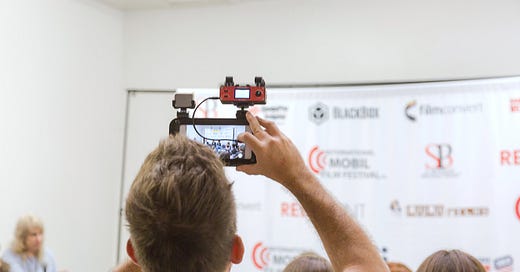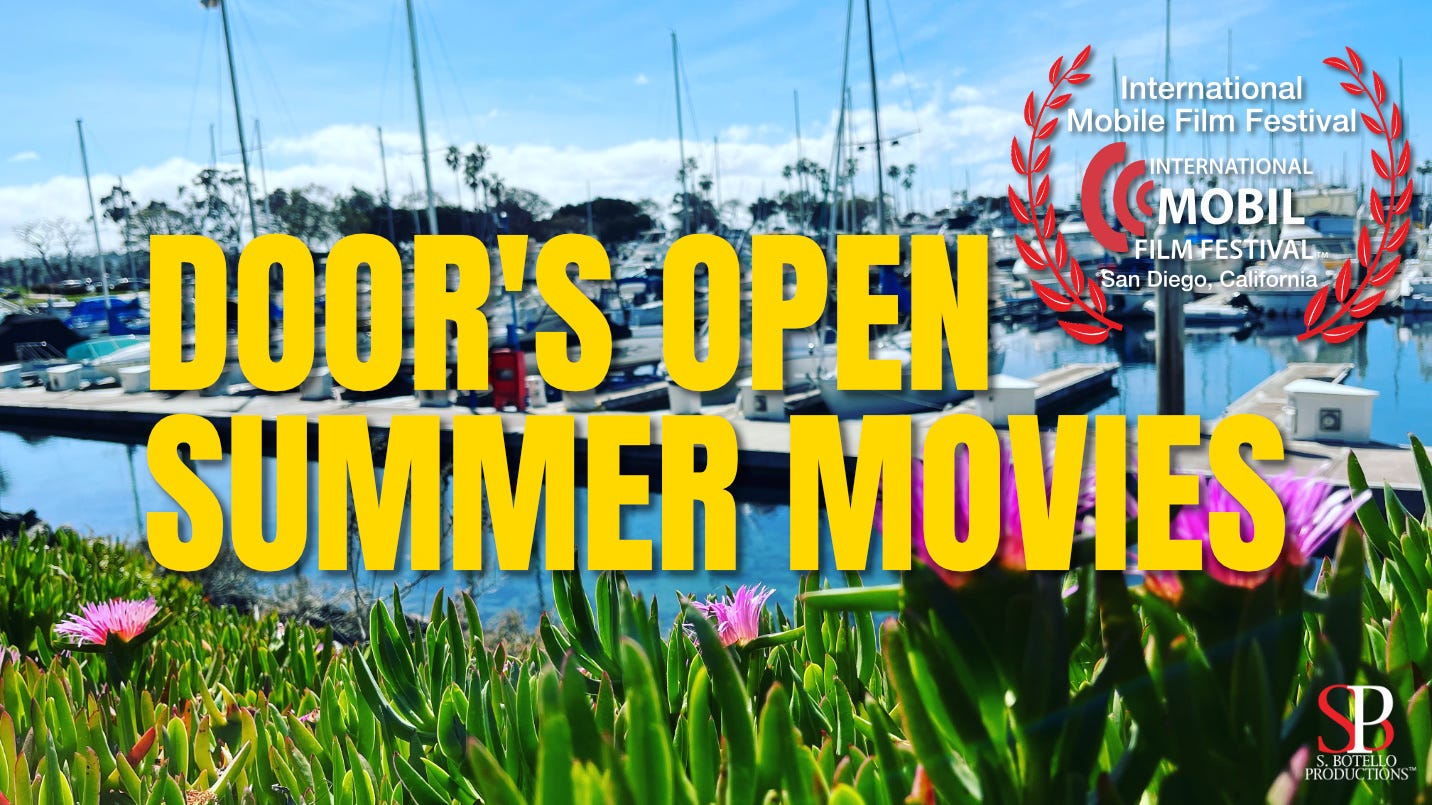There are many similarities between a storyteller making a movie with an expensive traditional filmmaking camera and one making a movie with a smartphone camera. They both start out with a story they want to turn into a movie.
One difference is that when you have a traditional camera, you don’t use it everyday. You don’t carry it with you everywhere you go. You don’t use it to record home videos and all sorts of documentation. Texting a friend a short video of something you’re struggling with, for example. You don’t have the everyday, every moment, intimacy that we have with our smartphones.
Many filmmakers don’t have a camera, but hire someone with a camera as a DP (director of photography aka cinematographer). There are very few people who don’t have access to a camera on a smartphone. The point is that you have an opportunity to practice a lot.
The camera on your phone is one that you can become quite familiar with. In many ways, you can almost consider your smartphone camera as your friend. Always there when you need it.
The camera on your mobile phone is always accessible, and certainly one with an endless ability to to record video and play it back. Testing, experimenting, pretending…and the more you use it, it brings agility to your skillset as a filmmaker.
The intimacy between you and your story is facilitated through your familiarity with the tools to bring your film to life.
The production process is about capturing the footage. Preproduction is about planning and organizing and ensuring you are ready for production. Postproduction is about gathering all you’ve planned and captured and turning it into a movie that you can deliver to your intended audience. Whether it’s a film festival like ours, or a streaming service, or perhaps screening it in a theater—without a camera, you have nothing.
Begin with a screenplay. Get your camera out and begin to practice capturing scenes from your screenplay. Experiment with angles. Experiment with lighting and sound capturing. You’ve got the time and the means. Traditional filmmaking means you need to schedule a test shoot with a DP. If you have a traditional camera it means you need to plan when and where to test it. With a phone, you can decide to test it anywhere, anytime you feel the urge or have an idea.
The result is to become so familiar and comfortable with your camera, capturing footage, capturing good audio, editing, finalizing your production…that you become an expert. That you don’t need traditional filmmaking experience to know how you can make a movie. You only need to test, experiment and practice on your own time with the camera always at the ready—your phone.
The more you practice the more you know what to expect in different scenarios. For example, you’ll know that shooting without lights can be done under certain circumstances. You’ll know because you’ve already tested it many times and figured out how to overcome the obstacles. So when the time comes, you can be confident shooting a scene without lights.
Trusting your ability comes naturally in the moment.
Remember the first time you learned to drive a car, or make an egg omelette. You don’t put much thought into it anymore. You don’t feel anxious.
The most wonderful benefit of not having to think too much about how to capture your footage, is that you can focus instead on the movie you are shooting. You can be more creative. You are less inclined to waste time figuring out the how’s and use your time wisely during production. Your efficiency in getting from one scene to the next will be appreciated by your cast and crew. Your peace of mind is priceless during the filmmaking process.
You can concentrate on making that masterpiece you dreamed of making. And of course, we’d love for you to submit that gold into our film festival so we can celebrate your accomplishment!
Each submission is an entry to you to our monthly raffle!

Don’t miss the premier of Fade In To Film by SBP Podcast Mobile Filmmaking Tuesday, July 18.
Fade In To Film (FITF) is a biweekly panel discussion covering topics of interest affecting the filmmaking and mobile filmmaking community jointly, with a foundation in storytelling through film.






